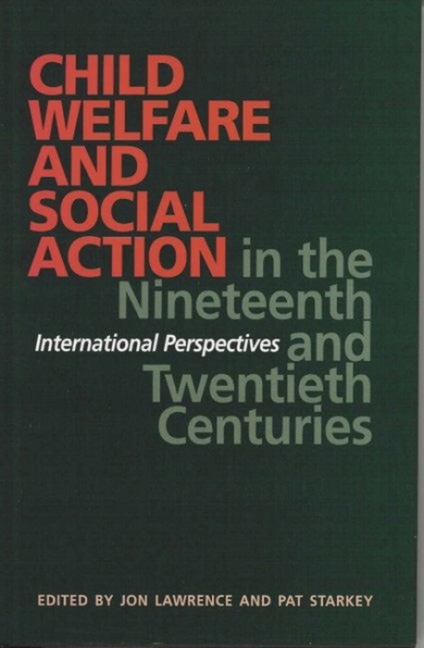Book contents
- Frontmatter
- Contents
- Acknowledgements
- Introduction: Child Welfare and Social Action
- I Gender and ‘Delinquency’
- II Child Emigration
- III Rethinking Philanthropy
- 7 From Barrack Schools to Family Cottages: Creating Domestic Space for Late Victorian Poor Children
- 8 The Campaign for School Meals in Edwardian Scotland
- 9 ‘Blood is Thicker than Water’: Family, Fantasy and Identity in the Lives of Scottish Foster Children
- IV ‘Welfare States’ and Child Welfare
- Notes on Contributors
- Index
8 - The Campaign for School Meals in Edwardian Scotland
from III - Rethinking Philanthropy
- Frontmatter
- Contents
- Acknowledgements
- Introduction: Child Welfare and Social Action
- I Gender and ‘Delinquency’
- II Child Emigration
- III Rethinking Philanthropy
- 7 From Barrack Schools to Family Cottages: Creating Domestic Space for Late Victorian Poor Children
- 8 The Campaign for School Meals in Edwardian Scotland
- 9 ‘Blood is Thicker than Water’: Family, Fantasy and Identity in the Lives of Scottish Foster Children
- IV ‘Welfare States’ and Child Welfare
- Notes on Contributors
- Index
Summary
In February 1888 the renowned Medical Officer of Health for Glasgow, James Russell, gave a speech entitled Life in One Room, or Some Serious Considerations for the Citizens of Glasgow. Russell described in detail the nature and consequences of overcrowding in Glasgow tenements – housing conditions in urban-industrial Scotland were widely acknowledged to be the worst in Britain – and urged his middle-class audience urgently to address these issues. Not to do so, he argued, would be not only a failure of Christian charity, but would also result in the physical degeneration of the population and the advance of socialist ideas. Russell put in a ‘special word for the children because of their essential helplessness, and because they are the men and women of the future’. To this end he urged his listeners to contribute to philanthropic organisations such as the ‘Poor Children's Dinner Tables’, one among a number of societies specifically concerned with feeding impoverished children.
Twenty years later the wide-ranging Education (Scotland) Act 1908 allowed School Boards to provide school meals and clothing, as well as introducing school medical inspection. One important characteristic of the 1908 Act in respect of school meals was that it was more comprehensive in scope than its English equivalent, the 1906 Education (Provision of Meals) Act – for example in not setting an upper limit on expenditure and in requiring Boards to investigate all cases of ‘neglected’ children. Superficially this is rather surprising, as Scotland had been excluded from the 1906 Bill by the House of Lords during its parliamentary passage. Nonetheless the 1906 and 1908 Acts, along with the Education (Administrative Provisions) Act, which introduced medical inspection to England and Wales, were extremely important. They addressed the growing concern with child welfare throughout early twentieth-century Britain by creating the school meals and school medical services. These services were, furthermore, without any associated Poor Law stigma; and an important element in the welfare reforms passed by the Liberal administrations in the wake of the party's landslide election victory in 1906.
There was not, however, a simple, straightforward progression from the arguments of social critics such as Russell to the school meals clauses of the 1908 Act, as Scotland's exclusion from the 1906 Bill might already suggest.
- Type
- Chapter
- Information
- Publisher: Liverpool University PressPrint publication year: 2001



